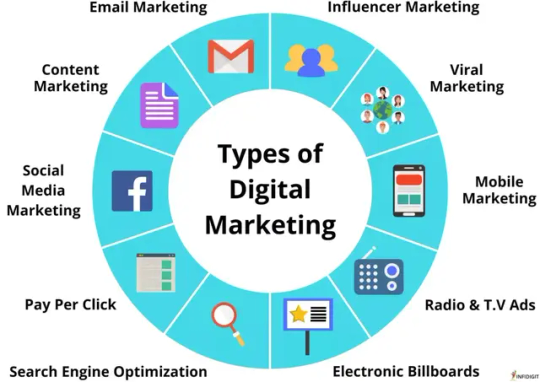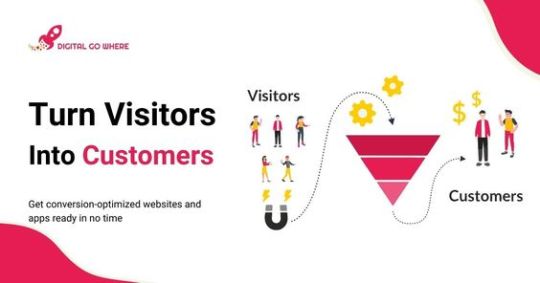#CRM Pardot
Explore tagged Tumblr posts
Text
Unlocking Business Growth: Maximizing Click Aims with HubSpot, CRM Excellence, and Pardot Services
In the rapidly evolving landscape of digital business, staying ahead requires a strategic blend of innovative tools and reliable partnerships. Click Aims, a trailblazer in digital services, has joined forces with HubSpot, a leading CRM platform, and harnessed the power of Pardot services to drive business growth. In this comprehensive SEO-focused blog post, we will delve into the synergies between Click Aims, HubSpot, and Pardot, exploring how small businesses can leverage CRM excellence and top-notch marketing automation to unlock their full potential.
0 notes
Link
Looking to boost your business's efficiency and ROI? Unleash the power of Pardot with GetOnCRM Consulting! Our experts will guide you through integrating this powerful marketing automation tool to streamline your business operations and drive results.
#salesforce#CRM#salesforce partner#salesforce integration consultant#consulting services#salesforce consulting partners#salesforce integration services#Pardotimplementation#pardot#salesforce pardot
6 notes
·
View notes
Text
Stop Emailing Blindly! Supercharge Sales with Salesforce Engage & Pardot



Struggling to personalize marketing campaigns and track engagement?
Salesforce Engage + Pardot is the answer! Integrate marketing automation with real-time sales insights for targeted outreach and increased conversions.
FEXLE, a Salesforce Engage & Pardot expert, can help you implement this powerful duo.
Contact FEXLE today and unlock the power of data-driven marketing!
Learn more here!
#salesforce#salesforce consulting services#salesforce gold partner#salesforce engage + pardot#Fexle services#hire fexle#salesforce crm
0 notes
Text
Battle of the Titans: Pardot vs. Marketing Cloud - Exploring Their Unique Strengths
In the dynamic realm of digital marketing, two titans stand tall: Pardot and Marketing Cloud. But what sets them apart??? Let's unravel their mysteries and explore their key differences to help you navigate the marketing landscape more effectively.
So first let us understand these two terms :
What is Pardot?
Imagine having a dedicated marketing ally, tirelessly nurturing leads and optimizing campaigns while you focus on your core business. That's Pardot for you! Pardot is a robust marketing automation tool designed to streamline your marketing efforts, from lead generation to conversion. It empowers businesses to create personalized campaigns, track engagement, and drive revenue growth with ease.
What about Marketing Cloud?
Now, picture a versatile platform that serves as your marketing command center, orchestrating campaigns across multiple channels seamlessly. That's the magic of Marketing Cloud! Marketing Cloud is an all-encompassing marketing platform that enables businesses to deliver personalized experiences at scale. From email marketing to social media advertising, Marketing Cloud empowers organizations to engage customers across every touchpoint and drive meaningful interactions.
Key Differences
1. Scope and Scale:
Pardot is tailored for small to medium-sized businesses seeking efficient lead nurturing and marketing automation solutions.
Marketing Cloud caters to larger enterprises with complex marketing needs, offering a wide array of features for multi-channel campaign management and advanced analytics.
2. Features and Functionality:
Pardot focuses primarily on lead generation, email marketing, and lead nurturing through automated workflows.
Marketing Cloud offers a comprehensive suite of tools for email marketing, mobile messaging, social media management, advertising, analytics, and more, making it a one-stop solution for enterprise-level marketing needs.
3. Customization and Personalization:
Pardot provides customizable templates and automation rules to personalize marketing campaigns and enhance engagement.
Marketing Cloud offers advanced segmentation capabilities, AI-driven personalization, and journey builder tools, enabling businesses to deliver highly targeted and personalized experiences across channels.
4. Integration and Scalability:
Pardot seamlessly integrates with Salesforce CRM, making it an ideal choice for businesses already leveraging Salesforce for sales and marketing operations.
Marketing Cloud offers extensive integration capabilities with Salesforce CRM and other third-party systems, providing scalability and flexibility for large-scale marketing initiatives.
In conclusion, while both Pardot and Marketing Cloud are formidable players in the marketing automation arena, their differences lie in scope, features, customization options, and scalability. Whether you're a budding startup or a global enterprise, choosing the right platform depends on your specific marketing goals, budget, and organizational needs. So, pick your marketing ally wisely and embark on a journey to conquer the digital realm!
0 notes
Photo

Get started with Salesforce Pardot today and revolutionize your marketing automation! Schedule a free demo with one of our experts and see how Pardot can help you streamline your marketing efforts, generate high-quality leads, and drive revenue growth.https://qrsolutions.com.au/solutions/salesforce/pardot/
#Salesforce Pardot automation#Pardot email marketing#Lead generation with Pardot#Salesforce Pardot integration#Pardot CRM#Pardot lead nurturing#Pardot lead scoring#Pardot social media marketing
0 notes
Text
#salesforce sales cloud#salesforce consulting partner#salesforce consulting services#salesforce consulting partners#salesforce consultants#salesforce pardot#salesforce crm#salesforce support services#salesforce data migration services#digital marketing services
0 notes
Text
Maximizing ROI: The Best Marketing Tools for Financial Services Professionals
Introduction
In the competitive landscape of financial services, professionals must leverage the right marketing tools to maximize their return on investment (ROI). With increasing digital advancements, it is essential to utilize a mix of traditional and digital strategies to build trust, generate leads, and improve client retention. This guide explores the best marketing tools financial services professionals can use to drive growth and profitability.

Understanding ROI in Financial Services Marketing
ROI in marketing measures the profitability of a campaign relative to the investment made. Financial professionals need to focus on tools that provide measurable results, streamline processes, and enhance client engagement.
Key Metrics to Track ROI
Customer Acquisition Cost (CAC) – The cost of acquiring a new client.
Customer Lifetime Value (CLV) – The total value a client brings over time.
Conversion Rates – The percentage of leads that turn into clients.
Engagement Metrics – Website traffic, email open rates, and social media interactions.
Digital Marketing Tools for Financial Services
1. Customer Relationship Management (CRM) Software
A CRM system helps financial professionals track leads, manage client interactions, and automate follow-ups.
Top CRM Tools:
Salesforce Financial Services Cloud
HubSpot CRM
Zoho CRM
2. Email Marketing Platforms
Email marketing remains one of the most cost-effective ways to nurture leads and maintain client relationships.
Best Email Marketing Platforms:
Mailchimp
Constant Contact
ActiveCampaign
3. SEO and Content Marketing Tools
SEO and content marketing help drive organic traffic to your website, increasing brand visibility and authority.
Recommended Tools:
SEMrush
Ahrefs
Google Analytics
4. Social Media Management Platforms
Financial services professionals can use social media to educate, engage, and convert potential clients.
Best Social Media Tools:
Hootsuite
Buffer
Sprout Social
Traditional Marketing Tools for Financial Services
1. Direct Mail Marketing
Direct mail remains a powerful way to connect with clients, offering a personal touch and higher engagement rates.
Effective Direct Mail Strategies:
Sending personalized investment insights
Mailers with exclusive financial tips
Invitations to financial webinars or seminars
2. Networking and Referral Programs
Word-of-mouth marketing is invaluable in financial services. Implementing referral programs can help professionals grow their client base effectively.
3. Event Marketing
Hosting in-person or virtual financial seminars builds credibility and strengthens client relationships.
Popular Event Types:
Educational financial workshops
Investment strategy webinars
Client appreciation events
Marketing Automation and AI-Powered Tools
1. Chatbots and AI Assistants
AI-powered chatbots enhance customer service by providing instant responses to inquiries.
Best AI Tools:
Drift
Intercom
ChatGPT-powered assistants
2. Marketing Automation Platforms
Automating repetitive marketing tasks allows financial professionals to focus on strategic growth.
Top Automation Platforms:
Marketo
Pardot
HubSpot Marketing Hub
Compliance and Security Considerations in Financial Marketing
Financial services marketing must adhere to strict regulations. Ensuring compliance with industry standards builds trust and credibility.
Compliance-Focused Tools:
Hearsay Systems – Ensures compliance in digital marketing efforts.
Proofpoint – Monitors and secures email communications.
Smarsh – Manages regulatory recordkeeping.
Measuring and Optimizing Marketing Performance
To maximize ROI, financial professionals must continuously measure and optimize their marketing strategies.
Essential Optimization Strategies:
Conduct A/B testing on email campaigns.
Analyze website performance and adjust SEO tactics.
Monitor conversion rates and refine lead generation strategies.
Conclusion
Maximizing ROI in financial services marketing requires a strategic blend of digital and traditional tools. By leveraging CRM systems, content marketing, social media, direct mail, and automation platforms, financial professionals can create impactful marketing campaigns that drive engagement, build trust, and increase profitability. Staying updated with compliance requirements and continually optimizing marketing strategies ensures long-term success in the financial industry.
youtube
SITES WE SUPPORT
Standard Postcard Size Automated Direct Mail for Financial Services Industry – Wordpress
SOCIAL LINKS
Facebook Twitter LinkedIn Instagram Pinterest
0 notes
Text
Boost B2B Sales: Identify and Nurture Your MQLs Effectively
In the competitive world of B2B marketing, driving growth means identifying and nurturing the right leads. But not every lead is ready for a sales conversation—this is where Marketing Qualified Leads (MQLs) come into play. MQLs are prospects who have shown interest in your brand but need further nurturing to reach the next stage of their buying journey.
So, how can businesses effectively identify and nurture MQLs? In this blog, we’ll explore actionable strategies, proven frameworks, and best practices to help you master lead generation and optimize lead nurturing.
What Exactly Are Marketing Qualified Leads (MQLs)?
Understanding the concept of MQLs is the first step to an effective B2B strategy. An MQL is a lead who has engaged with your content, product, or brand in a meaningful way but isn’t yet ready to make a purchase. They sit between basic inquiries (like a blog reader) and sales-qualified leads (SQLs), who are prepared for direct engagement with sales teams.
Get full insights@ https://itechseries.com/blog/marketing-qualified-lead-mql/
Identifying MQLs involves looking at specific behaviors like downloading whitepapers, attending webinars, or opening email campaigns. These actions signal an interest in your offerings and indicate that the lead is a step closer to conversion.
Why Are MQLs Important in B2B Marketing?
Not all leads are created equal, and recognizing this is critical for B2B marketing success. By focusing on MQLs, businesses can prioritize their resources on prospects with a higher chance of converting. This prevents sales teams from wasting time on unqualified leads, streamlining efforts to drive revenue.

Moreover, nurturing MQLs builds trust and strengthens relationships. A well-executed lead nurturing strategy guides prospects through the funnel, increasing the likelihood of turning interest into action.
How Do You Identify Marketing Qualified Leads?
The key to identifying MQLs lies in defining clear criteria based on your target audience and business goals. Start by collaborating with sales and marketing teams to create an MQL definition. This includes demographic attributes (like job title, company size) and behavioral triggers (content downloads, website visits, webinar sign-ups). A lead scoring model can help quantify these attributes to rank leads effectively.
For example, a lead downloading an eBook might receive 10 points, while attending a product demo earns 30 points. Once a lead reaches a threshold, they qualify as an MQL, ready for further nurturing.
What Tools Can Help You Track and Score MQLs?
Technology plays a critical role in identifying and tracking MQLs. Marketing automation platforms like HubSpot, Marketo, or Pardot help businesses monitor lead behaviors and interactions in real time. These tools allow marketers to implement lead scoring systems, segment leads, and automate follow-ups based on pre-defined triggers.
Additionally, integrating a CRM with marketing tools ensures seamless handoffs between marketing and sales teams. A connected system eliminates gaps and keeps MQL data accessible, ensuring no opportunity is missed.
How Do You Nurture MQLs Effectively?
Once you’ve identified your MQLs, nurturing them is the next step in converting interest into action. Lead nurturing involves building a relationship through consistent, value-driven engagement. This can include personalized email campaigns, educational content, and targeted offers. For instance, a series of emails could address pain points, share case studies, and highlight your product’s benefits.
Segmentation is key here. Group MQLs based on behaviors, needs, or challenges to deliver tailored content that resonates. The more personalized your nurturing approach, the better your chances of moving them closer to a purchase decision.
Explore the latest marketing and tech insights@ https://itechseries.com/gtm-library/
How Can Content Support MQL Lead Generation and Nurturing?
In B2B marketing, content is the backbone of identifying and nurturing leads. Top-of-funnel content like blogs and eBooks generates awareness and attracts potential leads. Once they’ve engaged, mid-funnel content—such as webinars, case studies, and product demos—provides the insights they need to evaluate your solutions.
Your content strategy should align with every stage of the buyer’s journey. By offering valuable, relevant resources, you not only identify MQLs but also guide them toward the decision stage.
What Metrics Should You Track to Measure MQL Success?
To optimize your MQL strategy, you need to track and analyze the right metrics.
Key metrics to monitor include:
Conversion Rate: The percentage of leads that become MQLs.
Lead-to-Close Ratio: How many MQLs eventually become customers.
Engagement Metrics: Email open rates, content downloads, and webinar attendance.
These data points highlight how effectively you’re identifying and nurturing MQLs. Regular analysis ensures you can tweak your strategy to drive even better results.
How Do Sales and Marketing Teams Align for MQL Success?
A successful MQL strategy requires alignment between sales and marketing teams. Both teams must agree on MQL definitions, lead scoring models, and handoff processes. Regular meetings and open communication foster collaboration, ensuring leads don’t fall through the cracks.
Sales teams can also provide valuable feedback on lead quality, helping marketers refine targeting efforts. This alignment ensures a seamless process from MQL identification to lead nurturing and, ultimately, conversion.
Get your business boost, visit now@ https://itechseries.com/contact-us/
Conclusion
Mastering Marketing Qualified Leads in B2B marketing is about balancing precision and personalization. By clearly identifying MQLs, implementing targeted lead generation strategies, and nurturing prospects with valuable content, businesses can drive higher conversions and build lasting relationships.
Aligning sales and marketing efforts, leveraging automation tools, and tracking metrics ensures that no lead is wasted. As the B2B landscape evolves, nurturing MQLs effectively will remain a cornerstone of success.
#Marketing Qualified Leads (MQLs)#B2B Marketing#Lead Generation#Lead Nurturing#Sales Funnel#Multi-Channel Marketing#Data-Driven Marketing
0 notes
Text
Utilizing Marketing Automation Tools: Streamlining Your Marketing Strategy

Source: Funtap from Getty Images
In today’s fast-paced digital landscape, businesses need to be more efficient and effective in their marketing efforts. One of the best ways to achieve this is by utilizing marketing automation tools. These tools not only save time and resources but also enhance the overall effectiveness of marketing campaigns. In this article, we’ll explore the various facets of marketing automation, including its benefits, popular tools, and best practices for implementation.
Understanding Marketing Automation
Marketing automation refers to the use of software platforms and technologies to automate repetitive marketing tasks. These tasks may include email marketing, social media posting, lead generation, and customer segmentation. By utilizing marketing automation tools, businesses can manage their marketing campaigns more efficiently and gain valuable insights into their performance.
The Benefits of Marketing Automation
https://visionarycios.com/wp-content/uploads/2024/11/11.1.-The-Benefits-of-Marketing-Automation-Source-putilich-from-Getty-Images.jpg
Time Savings: One of the primary advantages of utilizing marketing automation tools is the significant time savings they offer. By automating routine tasks, marketers can focus on strategic initiatives and creative aspects of their campaigns.
Improved Accuracy: Automation reduces the chances of human error. With marketing automation, tasks such as email segmentation and scheduling are performed with precision, ensuring that messages reach the right audience at the right time.
Enhanced Customer Experience: Personalized marketing is essential for attracting and retaining customers. By utilizing marketing automation tools, businesses can create targeted campaigns based on user behavior and preferences, leading to improved customer satisfaction.
Better Analytics and Reporting: Most marketing automation tools come with advanced analytics features. This allows businesses to track campaign performance, measure ROI, and make data-driven decisions. Understanding which strategies work best helps marketers refine their efforts over time.
Scalability: As businesses grow, their marketing efforts often need to scale as well. Utilizing marketing automation tools allows companies to efficiently manage larger volumes of leads and customer interactions without significantly increasing their workload.
Popular Marketing Automation Tools

HubSpot: HubSpot is an all-in-one marketing platform that offers tools for email marketing, social media management, lead generation, and analytics. Its user-friendly interface and comprehensive features make it a popular choice for businesses of all sizes.
Mailchimp: Originally known for its email marketing capabilities, Mailchimp has expanded to include automation features. Businesses can create automated email campaigns based on user behavior, segment audiences, and analyze performance through detailed reports.
Marketo: Marketo, now part of Adobe, is a powerful marketing automation platform designed for large enterprises. It offers advanced features for lead management, email marketing, and analytics, making it suitable for organizations with complex marketing needs.
ActiveCampaign: ActiveCampaign focuses on email marketing and customer relationship management (CRM). Its automation capabilities allow users to create personalized customer journeys and optimize their marketing campaigns.
Pardot: Pardot, owned by Salesforce, is designed for B2B marketing automation. It offers tools for lead nurturing, scoring, and analytics, helping businesses align their marketing and sales efforts more effectively.
Best Practices for Implementing Marketing Automation

Define Your Goals: Before implementing any automation tool, it’s crucial to define clear marketing objectives. Whether it’s increasing lead generation, improving customer retention, or enhancing brand awareness, having specific goals will guide your automation strategy.
Segment Your Audience: One of the key advantages of utilizing marketing automation tools is the ability to segment your audience based on various criteria such as demographics, behavior, and engagement levels. This ensures that your marketing messages are relevant and personalized, leading to higher engagement rates.
Create Valuable Content: Content is at the heart of any marketing campaign. When setting up automation, ensure that you’re providing value through your content. Whether it’s educational articles, how-to guides, or promotional offers, valuable content will engage your audience and drive conversions.
Test and Optimize: Continuous testing and optimization are essential for effective marketing automation. Regularly analyze your campaigns to identify what’s working and what’s not. A/B testing different elements of your campaigns, such as subject lines or call-to-action buttons, can provide valuable insights for improvement.
Integrate with Other Tools: To maximize the benefits of utilizing marketing automation tools, integrate them with other systems, such as CRM software and analytics platforms. This allows for seamless data flow between tools, enabling a more comprehensive view of your marketing performance.
Conclusion
In conclusion, utilizing marketing automation tools can transform how businesses approach their marketing strategies. By automating repetitive tasks, companies can save time, improve accuracy, and deliver personalized experiences to their customers. With the right tools and best practices in place, organizations can streamline their marketing efforts, ultimately leading to increased efficiency and better results. As technology continues to evolve, staying ahead of the curve with marketing automation will be key to maintaining a competitive edge in the market. Embrace these tools today and watch your marketing efforts soar to new heights.
#marketingstrategies#marketingsocial#customerjourney#magento#digitalmarketingagency#marketingideas#businessgrowth#marketinglife#marketingcampaign#software
0 notes
Text

Top Salesforce Tools to Elevate Your CRM in 2024
In the ever-evolving world of CRM, staying ahead is essential. Salesforce continues to lead the charge with a suite of tools designed to optimize your sales, marketing, and customer management efforts. Here are the must-have Salesforce tools for 2024:
✨ Salesforce Lightning: Transform workflows with its user-friendly interface and customizable dashboards.
🚀 Pardot: Automate your marketing and nurture leads with personalized campaigns.
📊 Einstein Analytics: Make smarter decisions with AI-driven insights and predictive analytics.
💼 Sales Cloud: Manage leads, opportunities, and relationships seamlessly.
🤝 Quip: Foster collaboration with real-time document and project sharing.
🌐 Community Cloud: Build branded online communities for customers, partners, and employees.
🔗 MuleSoft: Achieve seamless integration between Salesforce and other systems.
These tools empower businesses to thrive in 2024. Dive deeper into how they can transform your CRM strategy in our latest blog: Top Salesforce Tools You Need in 2024.
1 note
·
View note
Text
AI in B2B Lead Generation: A Guide to Harnessing the Power of Artificial Intelligence

Artificial intelligence (AI) is increasingly being used in business-to-business (B2B) lead generation to improve the efficiency, effectiveness, and scalability of the process. AI in B2B Lead Generation platforms can help businesses identify and engage with potential customers more effectively, increasing their chances of closing deals.
Benefits of AI in B2B Lead Generation
The benefits of using AI in B2B lead generation include:
Improved Lead Quality: AI algorithms can analyze vast amounts of data to identify high-quality leads that are more likely to convert into sales.
Increased Efficiency: AI-powered lead generation platforms can automate many of the tasks associated with lead generation, freeing up staff to focus on higher-value activities.
Enhanced Personalization: AI algorithms can analyze customer data and behavior to provide personalized recommendations and engagement strategies.
Reduced Cost: AI-powered lead generation platforms can help reduce the cost of lead generation by automating many of the tasks associated with marketing and sales.
Improved Customer Experience: AI algorithms can analyze customer feedback and behavior to improve the overall customer experience and increase satisfaction.
Types of AI Used in B2B Lead Generation
Several types of AI are used in B2B lead generation, including:
Predictive Analytics: Predictive analytics use machine learning algorithms to analyze customer data and predict their likelihood of buying.
Natural Language Processing (NLP): NLP is used to analyze and understand customer communications, such as emails and social media messages.
Chatbots and Virtual Assistants: Chatbots and virtual assistants are used to provide personalized support and engagement to customers.
Social Media Listening: Social media listening involves analyzing social media conversations about a company or its products to identify trends and sentiment.
AI-Powered Lead Generation Platforms
Several AI-powered lead generation platforms are available, including:
HubSpot: HubSpot is an all-in-one marketing, sales, and customer service platform that includes AI-powered lead generation tools.
Salesforce Einstein: Salesforce Einstein is a cloud-based analytics and machine learning platform that includes AI-powered lead generation tools.
Zoho CRM: Zoho CRM is a cloud-based customer relationship management (CRM) platform that includes AI-powered lead generation tools.
Pardot: Pardot is an enterprise marketing automation platform that includes AI-powered lead generation tools.
How to Implement AI in B2B Lead Generation
Implementing AI in B2B lead generation involves several steps, including:
Data Collection: Collect and analyze customer data to identify high-quality leads.
AI Algorithm Selection: Select an AI algorithm that is suitable for your business needs.
Integration with Existing Systems: Integrate the AI-powered lead generation platform with existing systems, such as CRM or marketing automation platforms.
Ongoing Optimization: Continuously monitor and optimize the AI-powered lead generation platform to improve its effectiveness.
Conclusion
AI has the potential to revolutionize B2B lead generation by improving the efficiency, effectiveness, and scalability of the process. By harnessing the power of artificial intelligence, businesses can identify and engage with high-quality leads more effectively, reducing costs, increasing customer satisfaction, and improving overall business performance.
0 notes
Text
Marketing Automation Services Company in India: Digital Go Where

Marketing Automation Services Company in India: Digital Go Where
In today’s fast-paced digital landscape, businesses are continually seeking innovative ways to streamline their marketing efforts and enhance customer engagement.
Digital Go Where is at the forefront of this evolution, providing comprehensive marketing automation services tailored to meet the unique needs of businesses across various sectors in India.
What is Marketing Automation Services?
Marketing automation services refer to the use of software platforms and technologies to automate repetitive marketing tasks and workflows.
This includes managing campaigns, segmenting audiences, nurturing leads, and analyzing performance.
By automating these processes, businesses can improve efficiency, enhance customer experience, and ultimately drive growth.
Why Marketing Automation Matters

Marketing automation is crucial for businesses looking to optimize their marketing strategies. It allows for:
Increased Efficiency: Automating routine tasks frees up time for marketers to focus on strategic initiatives.
Enhanced Personalization: Automation tools enable businesses to deliver targeted messages based on user behavior and preferences.
Improved Analytics and Reporting: With advanced analytics, businesses can measure campaign effectiveness and make data-driven decisions.
Lead Nurturing: Automated workflows help nurture leads throughout the buyer’s journey, increasing the likelihood of conversion.
Key Features of Marketing Automation Services
Digital Go Where offers a range of key features within its marketing automation services, including:
Email Marketing Automation: Streamlining email campaigns to send targeted messages at the right time.
Lead Scoring and Management: Identifying and prioritizing leads based on their engagement and behavior.
Customer Relationship Management (CRM) Integration: Seamlessly integrating with existing CRM systems for better data management.
Social Media Automation: Scheduling and managing social media posts to maintain a consistent online presence.
Analytics and Reporting: Comprehensive reporting tools to track performance and ROI.
Best Practices for Implementing Marketing Automation
To ensure successful implementation of marketing automation services, consider the following best practices:
Define Clear Goals: Establish what you want to achieve with automation, such as lead generation or customer retention.
Segment Your Audience: Create targeted campaigns by segmenting your audience based on demographics, behavior, and preferences.
Regularly Update Your Content: Keep your content fresh and relevant to engage your audience effectively.
Test and Optimize: Continuously test your campaigns and workflows to identify areas for improvement.
Train Your Team: Ensure your team is well-trained in using automation tools for maximum effectiveness.
Top Marketing Automation Tools
Digital Go Where recommends several top marketing automation tools to enhance your marketing efforts, including:
HubSpot: A comprehensive platform that offers inbound marketing, sales, and CRM features.
Marketo: Known for its advanced analytics and lead management capabilities.
Pardot: A Salesforce product that specializes in B2B marketing automation.
Mailchimp: Ideal for email marketing with automation features for small businesses.
ActiveCampaign: Offers email marketing, automation, and CRM functionalities.
The Future of Marketing Automation
As technology continues to evolve, the future of marketing automation looks promising. Key trends include:
Artificial Intelligence Integration: Enhanced personalization and predictive analytics powered by AI.
Omnichannel Marketing: A seamless customer experience across multiple channels.
Increased Focus on Customer Experience: Businesses will prioritize strategies that enhance customer engagement and satisfaction.
Greater Emphasis on Data Privacy: As regulations evolve, businesses will need to ensure compliance while leveraging customer data effectively.
This structured outline provides a comprehensive overview of marketing automation services offered by Digital Go Where, highlighting the significance and future potential of these services.
Conclusion: Digital marketing services Comapny
In an era where consumer expectations are continually rising, marketing automation has emerged as an essential tool for businesses striving to enhance their marketing effectiveness and operational efficiency.
Digital Go Where stands out as a leader in providing tailored marketing automation services in India, equipping businesses with the tools and strategies needed to thrive in a competitive landscape.
FAQs: Marketing Automation Services Company
1. What types of businesses can benefit from marketing automation?
Ans: Marketing automation can benefit businesses of all sizes and industries, from startups to large enterprises. It is particularly useful for businesses looking to enhance customer engagement, streamline their marketing efforts, and improve lead management.
2. How does marketing automation improve customer engagement?
Ans: By utilizing marketing automation, businesses can deliver personalized and timely content to their audience. Automated workflows ensure that customers receive relevant messages based on their behavior and preferences, fostering a more engaging experience.
3. Is marketing automation only for email marketing?
Ans: No, marketing automation encompasses a wide range of activities beyond email marketing. It includes social media management, lead nurturing, customer relationship management, and analytics, providing a comprehensive approach to marketing.
4. How do I choose the right marketing automation tool?
Ans: When selecting a marketing automation tool, consider your business size, budget, specific marketing needs, ease of use, integration capabilities with existing systems, and customer support.
0 notes
Text
Using Technology to Improve B2B and B2C Communication: The Best Tools to Grow Your Company
Using solutions that adjust to customer behaviour can revolutionise your engagement tactics for business-to-consumer (B2C) enterprises. The way businesses personalise their communications is being revolutionised by AI and machine learning, which adapt messages depending on individual behaviours and anticipated needs. In order to increase conversions and loyalty, this produces a more pertinent and interesting consumer experience.
Using intent data and account-based marketing can help B2B businesses develop deeper, more meaningful connections with their customers. These technologies make it possible to comprehend customer wants and behaviour more thoroughly, which enables the creation of personalised communications.
Assessing the Communication Needs of B2C and B2B The sales process in business-to-business (B2B) communication comprises several parties and is typically more fact-based. It's important to know what your audience needs in this situation. You can efficiently manage and measure interactions with the use of tools like email campaigns and CRM systems.

The emphasis for B2C lead creation now is on more rapid and interactive interactions. Social media platforms and content marketing are essential channels that cater to B2C communication needs. You should present your goods or services in a style that quickly piques curiosity and draws attention. Technology Integration for Enhanced Interactions
Integrating technology tools into your communication strategy can greatly enhance interactions. For B2B, leveraging technology like marketing automation and advanced analytics enables precise targeting and measuring of engagement. Platforms such as RollWorks and Salesforce can help in creating tailored campaigns based on customer data.
For B2C communication, utilizing tools like chatbots, social media scheduling tools, and analytics dashboards can streamline and personalize customer interactions. These tools allow you to respond in real-time and customize user experiences based on browsing history and behavior.
Assessing the Communication Needs of B2C and B2B The sales process in business-to-business (B2B) communication comprises several parties and is typically more fact-based. It's important to know what your audience needs in this situation. You can efficiently manage and measure interactions with the use of tools like email campaigns and CRM systems. The emphasis for B2C lead creation now is on more rapid and interactive interactions. Social media platforms and content marketing are crucial tools that cater to B2C communication demands. You should present your goods or services in a style that quickly piques curiosity and draws attention. Streamlining Processes with Automation
Automation tools can streamline your business processes, reducing manual labor and increasing accuracy. Implementing marketing automation software like Marketo or Pardot automates repetitive tasks such as email marketing, lead scoring, and social media posting.
Sales automation can drastically improve lead conversion rates. For example, automated lead capture systems collect potential customer data more efficiently. B2B marketing automation enables businesses to prioritize high-quality leads through automated segmentation and scoring.
Workflow automation tools like Zapier or Microsoft Power Automate integrate various business applications, creating seamless workflows between different systems. This enhances efficiency and ensures data consistency across your tech stack, allowing you to manage and analyze processes in real time.
Laxman Kodadala
Conclusion
With the right tools, you can streamline your interactions, making them more efficient and impactful in both B2B and B2C communication.
Utilize comprehensive solutions to address the unique needs and pain points of your audience. Tools such as CRMs, email marketing platforms, and social media management software are crucial for better engagement.
Enhance your marketing communications by using tools that facilitate fact-based, rational messaging. B2B interactions often involve multiple stakeholders, making targeted and precise communication indispensable.
Remain flexible and concentrate on ongoing development. You may greatly increase the effectiveness of your company's communication by putting your consumers at the centre of your initiatives, making use of cutting-edge tools, and keeping up with developments in the e-marketplace.
1 note
·
View note
Text
How to Successfully Integrate Your CRM with Marketing Tools
In today’s digital landscape, customer relationship management (CRM) systems are essential for managing interactions with customers, streamlining processes, and improving profitability. At the same time, marketing tools are critical for targeting the right audiences, generating leads, and nurturing those leads into loyal customers. However, to achieve the maximum benefit, businesses must successfully integrate their CRM with marketing tools. This integration can help align sales and marketing efforts, provide better insights into customer behavior, and lead to more effective marketing campaigns.
In this blog, we will explore how to successfully integrate your CRM with marketing tools, the benefits of doing so, and the steps required for seamless integration. Whether you're working on this integration in-house or partnering with a Marketing Technology Consulting firm like Trantor, these insights will ensure your efforts lead to enhanced customer engagement and improved results.
Why CRM and Marketing Tool Integration Matters
Integrating CRM with marketing tools allows for the synchronization of customer data, which in turn enables a more personalized and effective marketing approach. Without integration, businesses often deal with fragmented data across systems, leading to missed opportunities for engagement and lost sales. Some of the key reasons why CRM and marketing integration are vital include:
Unified Customer View: A centralized data system that combines CRM and marketing tool data provides a 360-degree view of customers. This helps in understanding customer preferences, behaviors, and buying patterns, enabling personalized marketing efforts.
Improved Lead Management: Seamless integration allows marketing teams to easily hand over qualified leads to sales teams, improving the lead management process. Marketing campaigns can be better tailored based on lead status and previous interactions recorded in the CRM.
Data-Driven Insights: Integrated systems provide richer analytics by combining data from both marketing campaigns and CRM. This helps in determining the ROI of marketing campaigns and optimizing future strategies based on customer responses.
Better Customer Experience: Personalization is key to customer retention. Integrating marketing tools with CRM enables businesses to personalize messages and offers based on CRM data, ensuring a more tailored and relevant customer experience.
Steps to Successfully Integrate Your CRM with Marketing Tools
1. Assess Your Current Tools and Needs
Before jumping into the integration process, it’s important to assess your current CRM and marketing tools. Evaluate what tools you are currently using and whether they meet your business needs. Ask yourself:
Are you using a CRM system that can support marketing integrations?
What marketing tools (email marketing, social media management, etc.) are crucial for your strategy?
Are your tools scalable to support your growth?
If your current tools don’t offer the features or integrations you need, it might be time to consider switching platforms or upgrading to more robust solutions.
2. Choose the Right CRM and Marketing Tools
Not all CRM systems and marketing tools are compatible with each other. It’s important to choose tools that can integrate seamlessly to avoid compatibility issues. Some popular CRMs, like Salesforce, HubSpot, and Zoho, offer built-in integrations with marketing automation platforms like Mailchimp, Marketo, or Pardot.
When choosing your CRM and marketing tools, look for the following:
Native Integrations: Many platforms offer native integrations, meaning the two systems can communicate without needing third-party software.
Open APIs: If your CRM and marketing tool don’t have native integrations, check if they have open APIs (Application Programming Interfaces) that allow them to connect. APIs enable developers to build custom integrations tailored to your specific needs.
Third-Party Integrations: If your chosen platforms don’t support native integrations or open APIs, third-party tools like Zapier or Integromat can bridge the gap, allowing you to create workflows between systems.
3. Map Out Your Data Flow
Once you’ve selected the right tools, the next step is to define how data will flow between them. This involves mapping out what information needs to be shared between your CRM and marketing tools. Some important data points to consider include:
Customer Information: Names, email addresses, phone numbers, and any other contact details should be shared across systems to ensure accurate communication.
Interaction History: Include data on customer interactions, such as emails opened, clicks, or website visits. This can be useful for creating personalized marketing messages.
Lead Scoring: If you use lead scoring in your CRM, this data should be shared with your marketing tool so that marketing campaigns can target leads based on their score.
Sales Data: Integrating sales data from your CRM with marketing tools allows you to measure the success of campaigns by tracking closed deals and revenue generated.
By carefully planning your data flow, you’ll ensure that your CRM and marketing tools are aligned, providing a cohesive customer experience.
4. Set Up Automation Workflows
Automation is one of the biggest advantages of integrating CRM with marketing tools. Once your systems are integrated, you can create workflows that automate repetitive tasks and ensure consistent communication across platforms. Some examples of automation workflows include:
Lead Nurturing Campaigns: Automatically send targeted email campaigns based on a lead’s position in the sales funnel. For example, if a lead moves from the “interested” to the “engaged” stage, they could receive a personalized email encouraging them to take the next step.
Lead Scoring Updates: Automatically update a lead’s score in your CRM based on their interactions with your marketing campaigns, such as clicking on links or downloading content.
Follow-Up Reminders: Automatically trigger follow-up reminders in your CRM when leads or customers take specific actions, such as filling out a form or abandoning a shopping cart.
Automation saves time, improves accuracy, and ensures that no opportunity slips through the cracks.
5. Train Your Teams
Integrating CRM with marketing tools is not just about technology; it also requires a shift in how your teams work together. Ensure that both your marketing and sales teams understand how to use the integrated systems effectively. Key training areas should include:
How to access and interpret shared data
How to create and manage automated workflows
Best practices for using CRM data to personalize marketing efforts
Cross-functional training will help teams work more collaboratively, making the most of the integrated system.
6. Test and Monitor the Integration
Once your CRM and marketing tools are integrated, it’s important to test the setup to ensure everything is working correctly. Run small test campaigns to verify that data is flowing as expected between systems. Check that leads are being captured and synced with your CRM and that marketing messages are personalized based on CRM data.
After the initial testing phase, continue to monitor the integration on an ongoing basis. Keep an eye on data accuracy and performance metrics to identify any issues that may arise. Regularly review your workflows and make adjustments as needed to optimize your campaigns.
7. Measure and Optimize
One of the major benefits of CRM and marketing tool integration is the ability to measure the success of your campaigns more accurately. With all your data in one place, you can track key performance indicators (KPIs) like lead conversion rates, customer acquisition costs, and campaign ROI. Use this data to make informed decisions about future marketing strategies.
For instance, if a particular campaign shows a high conversion rate, you can allocate more budget to that campaign or replicate its approach in other areas. Similarly, if certain leads are not converting, use CRM data to identify potential roadblocks and adjust your messaging or strategy accordingly.
Partnering with Experts for Seamless Integration
Integrating your CRM with marketing tools can be a complex process, especially for businesses with limited in-house technical expertise. That’s why many companies choose to work with professional Marketing Technology Consulting firms like Trantor. These experts can guide you through the integration process, ensuring your systems are aligned and optimized for success. With their help, you can focus on growing your business while they handle the technical complexities of CRM and marketing tool integration.
Conclusion
Successfully integrating your CRM with marketing tools is essential for businesses looking to enhance customer relationships, improve lead management, and drive better marketing results. By choosing the right tools, planning your data flow, setting up automation, and continuously measuring performance, you can create a seamless system that aligns your sales and marketing efforts. Whether you handle the integration yourself or partner with experts like Trantor, a well-integrated CRM and marketing system will empower your business to deliver personalized, data-driven campaigns that drive growth.
0 notes
Text
WHAT IS THE ROLE OF SALESFORCE CONSULTANTS IN UPGRADING YOUR CRM
If you wish to increase your sales the tech way or are currently using Salesforce CRM, then this blog is a must-read for you. Salesforce CRM is the robust and powerful ally in your kitty every business needs. It provides all customer – front end teams ( sales, marketing, and services ) to nurture prospects and automate the entire sales or marketing process. Though using the entire “juice” of Salesforce CRM without the services of Salesforce consultants in Salesforce consulting services is not possible. It's in the interest of businesses to use Salesforce consultants in Salesforce consulting services. Salesforce consultants in Salesforce consulting services assist customers across limitations, use the CRM as intended to extract max mileage, and improve Salesforce’s out-of-the-box functionality.
Good Salesforce consultants in Salesforce consulting services carry out daily maintenance extracting the maximum out of the Salesforce investment. Salesforce consultants in Salesforce consulting services provide consultancy & support—such as advice on the upgrades & personalizations that ensure enhanced productivity across all business processes. Their problem-solving skills and ability to troubleshoot via Salesforce keep you rocking overcoming all hiccups and speed breakers in your digital journey.
How do Salesforce consultants in Salesforce consulting services upgrade your CRM experience?
Customization of dashboards & reports analysis. Salesforce is the monarch when it comes to customization and the same applies to the dashboards. These can be molded as per your needs. This is where Salesforce consultants in Salesforce consulting services come into play. They also make sense of various reports and help you use them to take meaningful actions & plan for the future. User-friendly reporting is in your business interests.
Training and support services. Deployment and consultancy are only the start of the CRM journey. Training to ensure usage by employees and support services to address all needs & pains that surface from time to time is also essential. All upgrades & updates are taken care of by these professionals. They ensure you focus on your business and its growth while they take care of your CRM needs. Get the seamless experience you deserve.
Ensuring the org is organized. The organization of data is crucial for success and here is where the consultants keep it in order. They review the records preventing a cache of dirty records. Cleaning of systems and data/records is always good. Good consultants also work magic on the Salesforce quoting process, which is tricky and not everyone’s cup of tea.
Sourcing leads. Collaboration & communication is made easy and transparent. No silo. All work together in tandem. This is achieved by the tireless work of the Salesforce consultant. Setting up systems, clean data, best practices, integration services, and consultancy all work to obtain leads and nurture them into paying clients. This all is the work of experienced and certified personnel.
Codleo has a large team of Salesforce consultants in Salesforce consulting services for you’s A to Z needs, anywhere and anytime. Connect to know more and get your Salesforce org working overtime for you.
#salesforce consultants#salesforce consulting services#salesforce consulting partners#salesforce pardot#salesforce managed services#salesforce support services#salesforce crm#salesforce sms#salesforce solutions
1 note
·
View note
Text
How to Get Good Life Insurance Leads That Convert
In the competitive world of life insurance, getting quality leads that convert into paying customers is essential for success. Without an effective lead generation strategy, even the best products and services can go unnoticed. Life insurance agents and businesses must be proactive in finding leads that convert. In this blog, we will explore how to get life insurance leads that convert, with insights into tools and other lead generation platforms.
We’ll also cover the key factors that turn a lead into a loyal customer, from building trust to personalizing communication. By the end of this post, you'll have the strategies and tools to improve your lead conversion rates, allowing your business to grow and thrive.
The Importance of High-Quality Life Insurance Leads
Lead generation is one thing, but converting leads is where the magic happens. For life insurance companies, converting leads is not as simple as it sounds. Life insurance is often viewed as a long-term investment, and customers take their time in making decisions.
Here is why focusing on high-quality leads is critical:
Better Conversion Rates: High-quality leads are more likely to convert into paying customers, which means more sales and growth.
Improved Efficiency: It saves time when sales teams focus on leads who are more likely to buy, instead of chasing after cold leads.
Increased Lifetime Value: Life insurance customers who are targeted effectively tend to stay with the company longer, providing higher lifetime value.
Strategies for Getting Good Life Insurance Leads
Now that we’ve established the importance of high-quality leads, let’s dive into effective strategies for obtaining these leads.

1. Leverage Lead Generation Tools Like LeadFoxy
In the digital age, it’s almost impossible to generate leads manually, especially when competing with big players in the insurance industry. This is where lead generation tools come into play, automating the process of finding, capturing, and nurturing leads.
LeadFoxy is an excellent tool for life insurance businesses looking to streamline their lead generation process. The platform provides a robust solution for capturing leads through multiple channels like social media, email marketing, and more. LeadFoxy offers a 7-day premium free trial and a 20% discount with the code “Lead20,” making it an affordable option for insurance agents and agencies looking to ramp up their lead generation efforts. LeadFoxy also has an affiliate marketing program, providing another income stream for users who refer others to the service.
Other tools similar to LeadFoxy include:
HubSpot: HubSpot offers a wide range of inbound marketing tools, including a CRM system that helps capture and manage life insurance leads. HubSpot is great for integrating lead generation with sales and customer management.
Zoho CRM: This platform provides automation for capturing leads and sending targeted emails. It’s user-friendly and great for businesses just starting with automation.
LinkedIn Sales Navigator: Especially for B2B life insurance, LinkedIn Sales Navigator can be an excellent tool for generating leads from business professionals and company decision-makers.
Pardot by Salesforce: Pardot is ideal for businesses looking to integrate their lead generation with advanced analytics and a powerful CRM system.
2. Utilize Social Media Advertising
Social media is one of the most effective platforms for generating life insurance leads. With millions of people active daily, social networks like Facebook, Instagram, LinkedIn, and Twitter can provide you with access to a massive audience.
Here are some key strategies for social media lead generation:
Create Targeted Ads: Platforms like Facebook allow you to target users based on their age, location, interests, and behaviors. You can tailor your ads to reach those most likely to be interested in life insurance.
Offer Free Consultations or Webinars: Running ads that offer something valuable—like a free consultation or a webinar on the importance of life insurance—can entice users to submit their contact details.
Leverage LinkedIn for B2B Leads: If you offer corporate life insurance packages, LinkedIn is an excellent platform for targeting business owners and HR managers.
3. Implement Email Marketing Campaigns
Email marketing continues to be one of the most cost-effective ways to generate and convert leads. With the right strategy, you can nurture your leads until they’re ready to make a purchase.
Tools like LeadFoxy can help automate email campaigns, making it easier to follow up with leads. Here are some strategies to get the most out of your email marketing:
Segment Your Leads: Divide your leads into different categories based on their behavior or where they are in the customer journey. This allows you to send more targeted and personalized messages.
Provide Valuable Content: Send emails that educate your leads about life insurance, such as tips for selecting the best policy, the importance of life insurance, and more.
Follow-Up Reminders: Sometimes, all it takes is a gentle reminder. Use automated follow-up emails to keep your business on your leads' minds.
4. Optimize Your Website for Lead Generation
A well-optimized website can be a powerful tool for capturing life insurance leads. However, simply having a website isn’t enough you need to ensure that it’s set up to capture and convert leads effectively.
Here is how to optimize your website:
Create Compelling Call-to-Actions (CTAs): Ensure that every page of your website has clear, compelling CTAs, such as "Get a Free Quote" or "Schedule a Consultation."
Offer Free Resources: Free guides or eBooks related to life insurance can encourage website visitors to provide their contact details.
Use Chatbots: Tools like LeadFoxy can help you install a chatbot on your website to answer customer queries in real-time. Chatbots can engage potential customers and guide them toward a purchase.
5. Build Trust Through Testimonials and Case Studies
Life insurance is a significant financial commitment, and customers want to trust the company they're working with. Building that trust is crucial for improving your lead conversion rate.
Here’s how to build trust:
Show Customer Testimonials: Real-life success stories from satisfied customers can go a long way in building trust. Include testimonials prominently on your website, social media, and marketing materials.
Create Case Studies: If you’ve helped a customer solve a specific problem with your life insurance policies, create a case study to showcase your expertise and reliability.
6. Partner with Financial Advisors or Real Estate Agents
Collaborating with other professionals can be an excellent way to generate quality leads. Life insurance is often closely tied to other financial services, so it makes sense to partner with financial advisors, accountants, or real estate agents who can refer clients your way.
Here is how to create partnerships that generate leads:
Set Up Referral Programs: Offer commissions or bonuses to financial advisors or real estate agents who refer clients to your life insurance products.
Cross-Promote Services: If you partner with other professionals, consider offering cross-promotions where both parties can benefit from promoting each other’s services.
7. Attend Networking Events and Conferences
In-person networking can still be an excellent way to generate leads. By attending life insurance conferences, business seminars, or local networking events, you can meet potential clients and establish relationships that lead to sales.
Here are some tips for successful networking:
Prepare Your Elevator Pitch: Be ready to explain what makes your life insurance offerings unique in just 30 seconds.
Bring Business Cards: Always have business cards on hand that provide clear contact information and direct potential clients to your website.
Follow Up: After meeting someone at a networking event, send a follow-up email or message to stay top of mind.
8. Offer Incentives for Referrals
Word-of-mouth marketing is one of the most effective ways to generate life insurance leads. Your existing clients can be one of your best sources for new leads especially if you incentivize them to refer friends and family.
Here is how to create a successful referral program:
Offer Discounts or Bonuses: Provide discounts on premiums or cash bonuses for customers who successfully refer someone who purchases life insurance.
Use a CRM for Tracking: Tools like Zoho CRM or LeadFoxy can help you track referrals, ensuring that your referral program runs smoothly.
Key Factors to Convert Life Insurance Leads
While generating leads is important, converting them is the real challenge. Here are the top factors that influence lead conversion rates in the life insurance industry:
Personalization: Sending tailored messages and providing personalized consultations can make leads feel valued, increasing the chances they will convert.
Trust and Credibility: People want to work with a company they can trust. Use social proof like reviews and testimonials to build credibility.
Effective Follow-Ups: Sometimes leads need multiple touchpoints before they’re ready to make a decision. Use automated follow-up sequences to stay engaged without overwhelming them.
Conclusion
Generating good life insurance leads that convert requires a multi-faceted approach. From leveraging automation tools like LeadFoxy to optimizing your website and email marketing campaigns, there are many strategies you can employ to grow your life insurance business. LeadFoxy offers a 7-day premium free trial and a 20% discount with the code “Lead20,” making it a valuable tool in your lead generation arsenal. Plus, LeadFoxy’s affiliate marketing program provides opportunities to generate additional income while helping others grow their businesses.
By focusing on high-quality leads, building trust, and utilizing the right tools and strategies, your life insurance business can enjoy a steady stream of leads that convert into long-term customers.
#Lead Generation#Lead Generation Tool#LeadFoxy Service#Lead Generation Service#B2B Lead Generation#LeadFoxy Tool#B2B Marketing#Automated Lead Generation#AI Lead Generation#Lead Generator#Email Marketing#Email Prospecting Tool#Affiliate Marketing#Affiliate program
0 notes